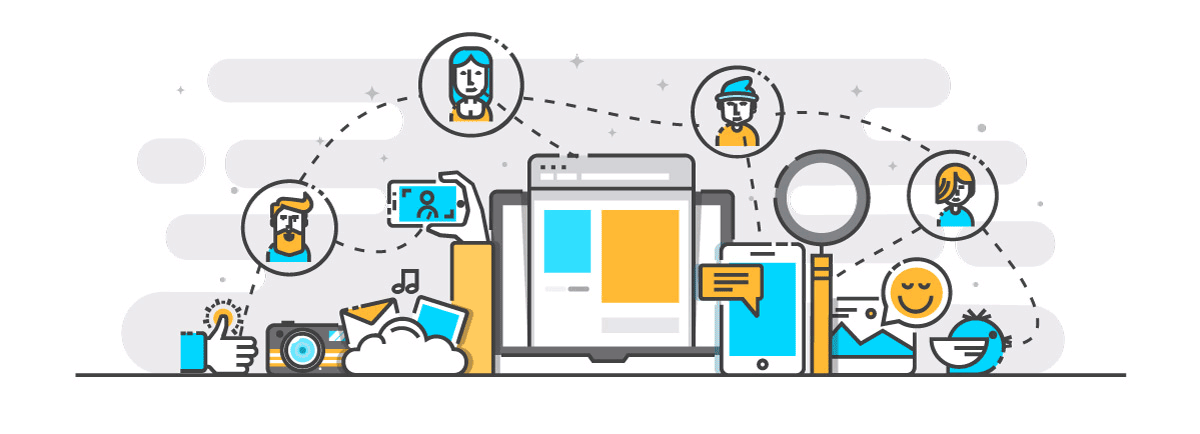Technology plays an important role in disseminating information, regardless of whether it is to raise public awareness or call for action. Now, unlike ten or twenty years ago, it is much easier to share information with a larger group through email or Twitter, to gather people at an event via Facebook or to sign a petition on change.org. Available digital tools (internet, mobile phones, social media, etc.) offer nearly unlimited opportunity for activists to be involved in the processes of social and/or political change, i.e. for so-called digital activism.
Digital tools offer a number of advantages, but here are 7 reasons to use them in your next action for change:
1. Documenting and combining
The most basic feature of digital technology is to document, i.e. to convert the information into digital format, from which an unlimited number of copies can be made. Creating content, be it is text, video, audio, visual content, etc. and its repair and adaptation has now been made easier, takes much less time and money.
Additionally, digital applications have the ability to streamline unprocessed information into a more useful format, by grouping or linking them to other pieces of information in a format called “mashup”.
2. Organizing/recruiting and connecting
Digital tools help to improve internal organization through facilitating communication. They offer opportunities for individual and group communication and reduce costs and time for recruiting new and retaining existing followers. They enable connection and organization outside the borders of the country, and larger networks of supporters can be created.
3. Co-creation

Creating plans or products that involve a large number of individuals or groups is facilitated by the use of digital tools. Such processes require constant information exchange, approval and supplementation.
Individuals located in different geographical locations could hardly work on the same project or activity without the use of the Internet or digital tools.
4. Exchange of resources
Sending and receiving information and/or resources (money) is much simpler and faster with the use of digital technology. Physical distance is no longer an obstacle, and waiting time is drastically reduced. Fundraising to support a particular action is made possible by various crowdsourcing platforms.
5. Discussion / Debate
Involving different opinions and starting a debate on a particular issue is especially important when advocating for change. Social media, for example, offers the opportunity to engage in debates and discussions on specific issues, while allowing different opinions to be heard/seen by stakeholders.

6. Real-time sharing
The ability to share information in real time is particularly important when organizing activities for social and/or political change. With the help of digital technology and tools, each individual has the ability to transmit information/images/videos from a specific place in real time.
7. Security and protection
Digital technology not only helps activists work together, but can also serve as protection, allowing them to circumvent censorship or avoid surveillance and monitoring.


